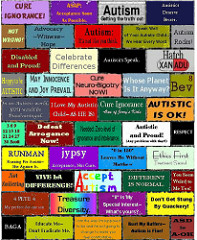My fourth-grade teacher Miss V is standing at the front of the classroom, writing something on the board and announcing the next assignment to the class. I am bobbing and straining to see around the four ranks of students in front of me, watching her gracefully stroking the chalk along the board to produce words in her perfect penmanship. The capitals swirl impressively, and her near-lack of spacing turns the words into ribbons of elegant loops and curls. I blink at it several times, and my focus finally shifts; pop! the calligraphy resolves into the vocabulary words “Huron” and “Michigan”.
I realise that today’s social studies lesson must be about geography, and we are studying the Great Lakes. I bet she’ll ask who remembers all of them, so I am mentally scrambling to remember all five lakes; there are always one or two that escape my mental list, as I don’t know any mnemonics for them. (Then again, remembering mnemonics can be even more difficult than remembering the original names.)
Wait a minute! Didn’t we color a map last week? I’d better pull that out to have it on hand. I feel proud for having thought of that, and know that Miss V will be very pleased that I’d been able to anticipate that part of her teaching strategy. Humming contentedly, I scoot my chair back so I can rummage around the inside of my school desk. In this classroom the school desks are solid metal shelves underneath heavy tabletops. I have what will decades later be known as ADHD, and not surprisingly the interior of my desk is a chaotic tangle of pencils, crayon bits, mashed-up assignment pages in various stages of completion, cool rocks, a forgotten/unsigned permission slip, well-worn erasers including one with thumb tacks (push pins) stuck in to turn it into a car, text books, treasured bits of shiny colored foil, pages of stories and drawings, Matchbox cars, and other débris.
I finally find my map and some of my colored pencils and slap them triumphantly on the desk. Then a pencil rolls off the edge and whilst retrieving it I lean over too far and crash into a neighboring student. Feeling foolish, I concentrate on finishing my preparation by smoothing out the crumpled map. Then I make yet another effort to refocus myself and sit up nice and straight to take a deep breath, responsibly looking toward Miss V – I am ready!
At that point I can see what the students around me have been doing for the past five minutes, and crushingly, I realise that I am totally off task. They aren’t doing anything at all with maps or colored pencils. The other students have some purple mimeographed worksheets out, and are writing on them. The class is quiet, or at least what the Miss V refers to as “quiet”; for me the room is still abuzz with scratching pencils, stuffy breathing, creaking chairs and desks, the ticking clock, playground noises, and the arguments of crows fighting each other for something that had fallen out of a lunch sack. Uh-oh … I freeze, feeling clammy and prickly, and my focal field tunnels down to encompass no more than a swirl in the desktop laminate.
Oh no, what am I supposed to be doing? What had I missed when she was talking towards the chalkboard? I’m stuck in short focus – I have peripheral vision but am not making any sense of it, so anything written on the chalkboard on the other side of the room has just become totally inaccessible to me.
This isn’t the first time I have gotten distracted, or have had an auditory or visual processing blip, or simply haven’t been able to see around the older-and-bigger students and thus misunderstood an assignment. So I know that if I once again ask the teacher what she just said I would get in trouble for “not paying attention”, and if I once again ask a nearby student what the Miss V said I would get in trouble for “talking out of turn”.
I need to do something to figure out what I should be doing … I will just check my neighbor’s page to see what the subject is, and what we are supposed to be doing. Having already annoyed one student by nearly falling on them, I graciously lean the other direction – thus unintentionally managing to annoy two students in as many minutes.
Suddenly Miss V is there looming over me, and her reprimands swirl around in my mind, the sentences weaving together and echoing in broken chunks. She is glaring at me, and once again I am unable to make eye contact so am staring at the ruffles on her pink blouse, stammering as I try to explain, “I was jus’JUST looking at oowwwhat she was doing …”
And that is why I appeared noncompliant and dishonest, and how I got into trouble for cheating on the reading worksheet about the Huron Indians.
Sometimes what looks like cheating isn’t. Rather, what we have is a student who is utilizing other environmental sources to get needed information. The distinction here is that the student is looking at another’s materials not for the answers to the assignment, but rather answers about the assignment, such as which pages or problems are assigned, or how the work is to be performed (e.g. in the book, on a piece of paper, writing out the questions or just the answers, putting spelling words in sentences or just writing them multiple times).
After all, it’s generally thought a child with perfect hearing should be able to understand directions. Included in this are the assumptions that in addition to basic sensory hearing, “hearing” includes being able to maintain attention (listening), being able to understand what is heard (decoding), and also knowing what is meant by those words (interpreting).
Corrective lenses should also mean that the child can see the board as well as anyone else. Included in this are the assumptions that in addition to basic sensory vision, “seeing” means being able to maintain attention from the beginning to the ending of the writing process (watching), being able to orient and select what is seen (discriminating), and also being able to decode what is meant by partially-written instructions (inferring).
Lastly, it’s generally thought that an intelligent child should be able to put it all together, to integrate the sensory information, and then turn around and express that processing appropriately, in task performance (planning and execution), in verbal responses (articulation), and in nonverbal responses.
Sadly, many people have never considered how many steps there are to processing sensory information. Next time you have a student who appears off-task, noncompliant, willful, rebellious or deceitful, don’t automatically assume that the student is misbehaving on purpose. This is too simplistic. It’s not always about the student trying to aggravate you – it may not be about you at all. Sometimes won’t is really can’t. And sometimes can’t is really can’t always.








Jon said,
3 December 2008 at 6:26
These reflections have been very interesting, and in a way, relieving, to read. I have APD and grew up with it when the best understanding was still “hearing dyslexia.” I remember once getting into a lot of trouble in sixth grade for talking in the hallway right after the teacher had told us to be silent – it wasn’t until eight years later that I understood how I could have missed those instructions. They just didn’t process.
David N. Andrews MEd (12-2006) said,
12 November 2006 at 23:27
Sharon: “It would be nice if all teachers could read this essay. It might help more of them to think about what is happening with some of the children they teach.”
One of the reasons I became an educational psychologist is that very reason: to give teachers an idea of what damage they can do when they fail to put their minds to being teachers.
Sharon said,
12 November 2006 at 18:20
It would be nice if all teachers could read this essay. It might help more of them to think about what is happening with some of the children they teach.
Rachel said,
3 August 2011 at 15:29
I just read this myself as my son is 10yrs old and has APD. I decided to print it to give to his new teacher to read. Every year its a struggle to get teachers to understand what it really going on. He goes to a private school and while they say they are willing to accomodate him, they don’t really always know how. I thought this essay would help.
Thanks!
LB said,
12 November 2006 at 5:22
I remember very distinctly when we were starting to take an important test – in gradeschool – that we were supposed to have “blah,blah,blah” for the test. I thought it was something about an eraser so since I knew this was very important (and I was pretty young and impressed by making sure I had everything exactly right) I leaned over to another student to ask and the teacher pulled my desk over and loudly annouced that I wasn’t supposed to look at anyone elses stuff. I was so upset that when the test started I couldn’t hardly do any of it.